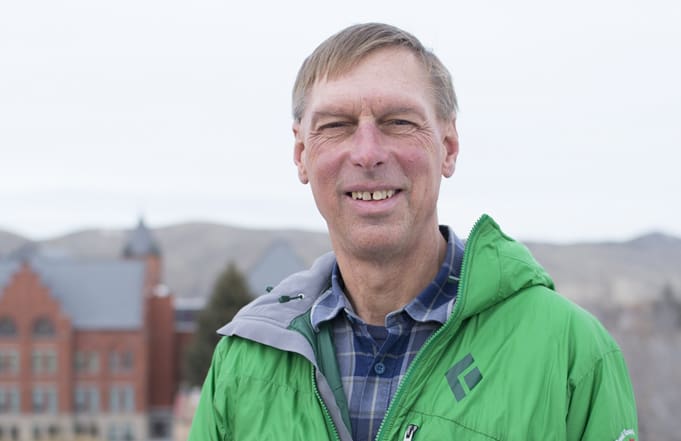September 28, 2018
Dr. Steve Mock, Professor of Chemistry in the Environmental Sciences Department at the University of Montana Western, launched the 2018-19 “On the Rocks” Colloquium on Sept. 10, 2018, presenting his volunteer work at Denali National Park in Alaska.

Mock has spent the last five summers as a volunteer climb and rescue ranger on Denali, the highest mountain peak in North America. The preparation to become a volunteer involves extensive training and climbing experience.
“The best way to train for a Denali expedition is to shovel snow all winter long,” he joked with the audience.
The ranger patrol consists of one professional climbing ranger and their volunteers. The volunteers are mostly experienced climbers with glacier travel experience. They train with a professional ranger at Talkeetna, Alaska, roughly 50 miles from the mountain, and fly into Denali on a helicopter, landing at base camp.
More training takes place at base camp, consisting of another day of crevasse extrication practice. Usually, travel happens on skis, which is both a safe and an enjoyable experience for the rangers. Each glacier has five base camps.
Base camp is at 7,200 feet, which is where climbers fly in and out. The final camp, camp 5, is also known as High Camp at an elevation of 17,000 feet. The intermediate camps are often referred to by their elevation.
The weather is usually unpredictable and windy, and every day comes with challenges.
“Sometimes it’s a shot in the white. You feel like you are in a ping pall ball. Everything is disoriented, and you can’t see anything. There is nothing but white,” said Mock describing an intense day of traveling.
The expeditions are expected to be self-sufficient. The ranger patrols are there primarily to monitor compliance with park guidelines, but also provide rescue assistance if necessary.
Mock urged climbers to use caution and plan ahead and not rely on the rescue teams because of the time it may take to receive assistance.
“You don’t fall in the crevasses that you see, you fall into the crevasses that you don’t see,” said Mock.
According to Mock, roughly 65% of the Denali climbers are from the U.S. and 35% are from around the world. Each trip takes about 17 days total with climbers ranging from children as young as 11 and seniors who have made the climb in their 70’s.
Mock discovered the opportunity to volunteer in Denali from working with rangers while in Nepal at the Khumbu Climbing Center, a program he has been involved with for the past ten years.
For more information about mountaineering at Denali National Park, visit the National Park Service website.